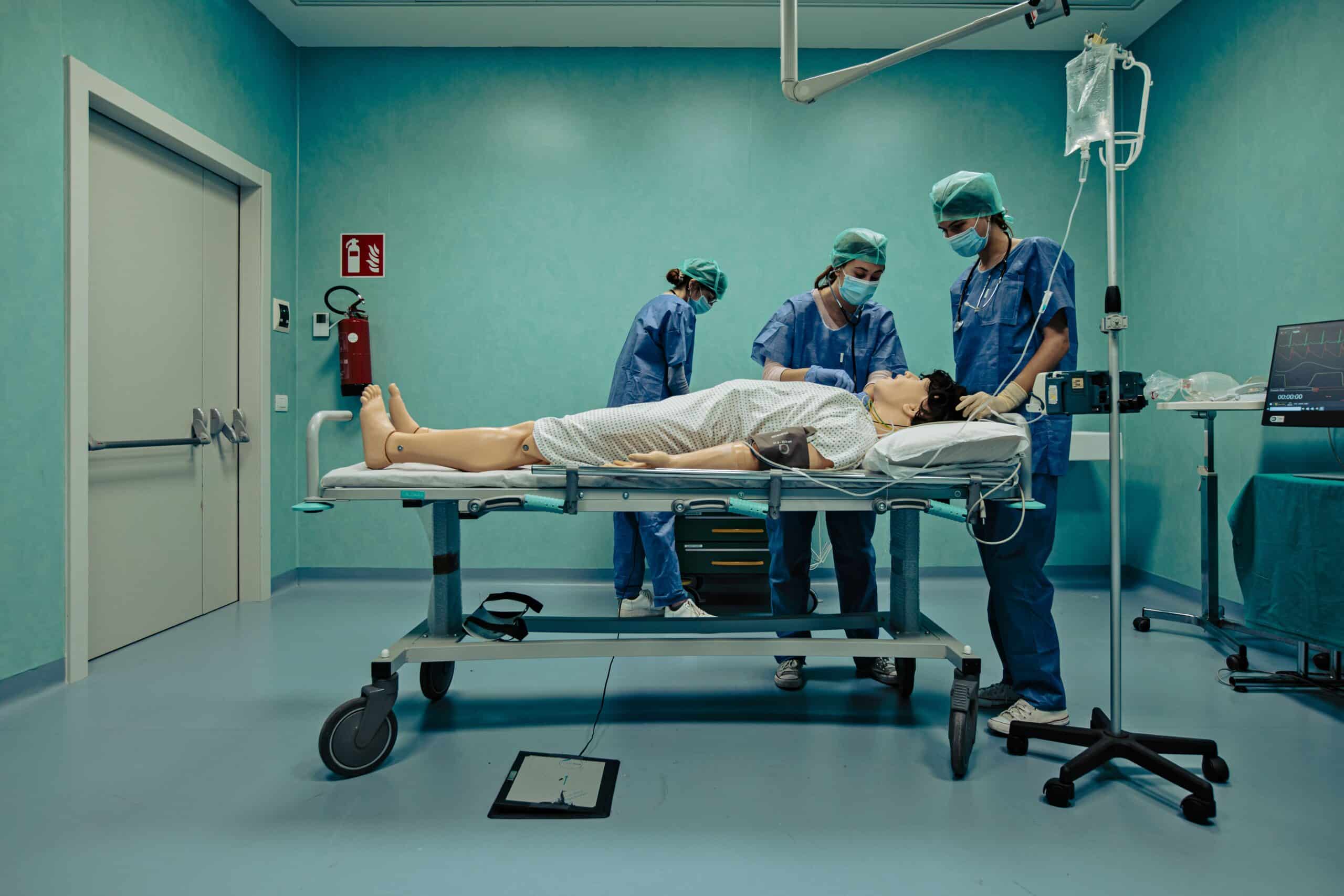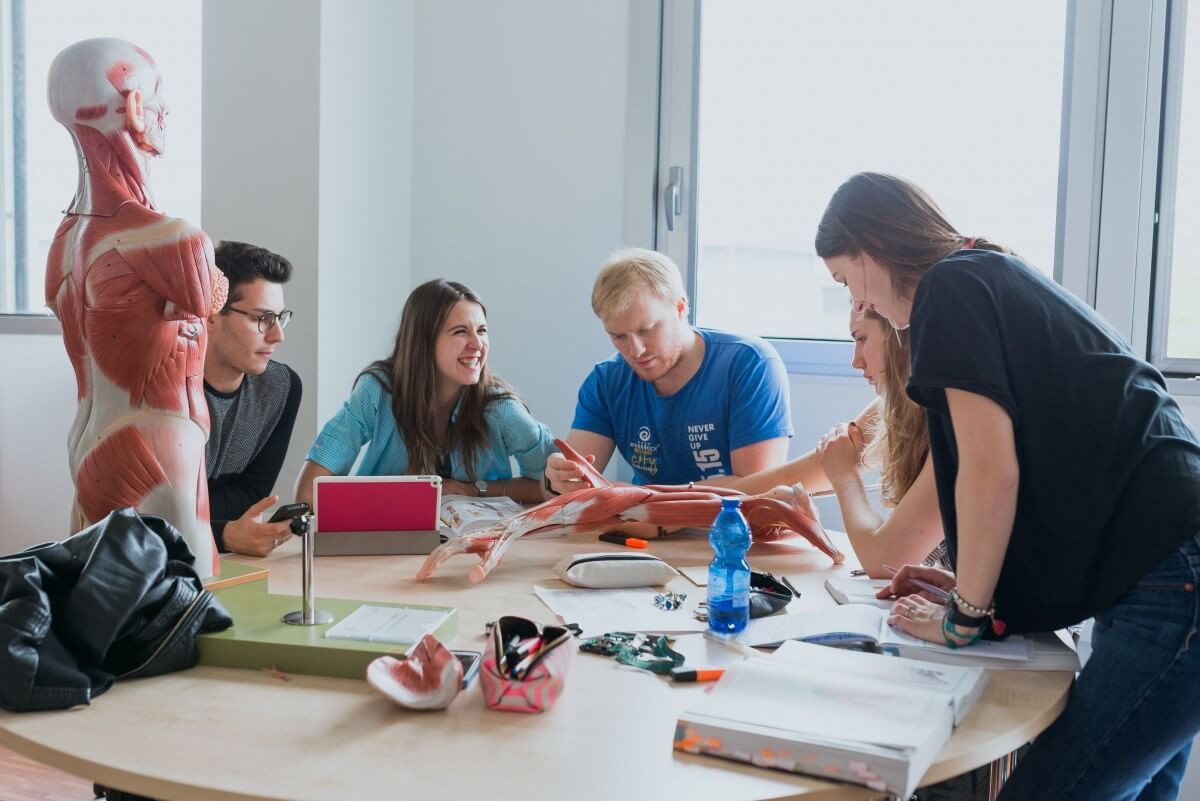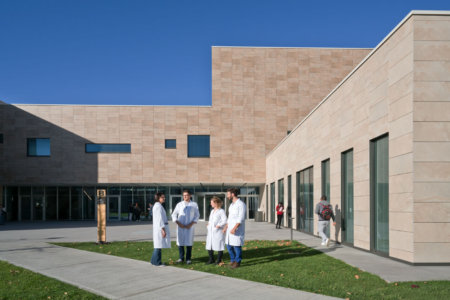AI cannot replace human intuition and empathy. It is why, no matter the advancement of AI in various industries, the medical industry still needs its healthcare professionals at the front, middle, and back of the field. In fact, Forbes listed them as one of the industries least impacted by AI, citing how mundane administrative tasks could be automated, but the heavier work will still require human minds and hands.
That said, the Global Strategy on Human Resources for Health: Workforce 2030 report highlighted a projected health workforce shortage of 18 million health workers by 2030, and the British Medical Journal has called for continuous attention to the quality of healthcare services.
Enter Humanitas University.
An international medical school dedicated to the life sciences, where education and training fully integrate with Humanitas Hospital and Humanitas Research Center, Humanitas University is where a world-class education awaits. It made its mark on the Times Higher Education World University Rankings 2023 as the highest new entry in the list – standing among the top 250 universities globally – scoring 99.7 out of 100 for scientific research alone.
Here, students enjoy a stimulating environment backed by active learning. The programmes balance theory and practice to ensure the development of critical and autonomous thinking skills. This, alongside specific professional competencies, prepares graduates to thrive in clinical and research areas wherever their career takes them.
Humanitas University is also home to the MEDTEC School programme. The six-year dual degree in Medicine and Biomedical Engineering combines traditional medical education with training to manage technological developments in the field. Students master the sciences as well as learn how to design personalised therapies using complex technological systems for clinical evaluation, diagnosis and treatment. They will learn to optimise therapeutic outcomes using new materials and advanced therapeutic devices based on data analytics and machine learning techniques.
Upon graduating from the MEDTEC programme, students are awarded two degrees: one in Medicine and Surgery (equivalent to the traditional degree in medicine) and one in Biomedical Engineering from the university’s partnership with Politecnico di Milano. Both degrees are fully recognised across Europe and many non-European countries, giving graduates a competitive edge. With engineering skills and clinical training, they will have opportunities to work in various medical fields, including biomedical device design, bio-medical technologies, or pharmaceutical industries.
Problem-based and experience-based learning is prioritised too. The university encourages the development of analytical and reflective skills required during clinical practice and independent research, decision-making, and teamwork.

Humanitas University is the only medical school in English in Milan with its own campus, offering student accommodation just a few steps away from the university, Humanitas Hospital and research laboratories. Source: Humanitas University
During medical training, students put theory into practice through simulation at the university’s Simulation Centre. It is the first of its kind in Italy to fuse clinical experience from the hospital, cutting-edge scientific research from the university and hands-on excellence from the Humanitas Training Center. Access to these spaces lets students learn in a controlled environment whilst reproducing clinical scenarios supervised by tutor. As the simulation becomes progressively more challenging, ranging from history-taking and procedural skills, students find themselves more prepared and confident.
Beyond its well-rounded programmes, Humanitas University is one of the few Italian institutes teaching its MEDTEC and Medicine programme entirely in English. Adding this to all that the university offers draws students from all over the world to join the institute. With four out of 10 students coming from outside Italy, the campus is a global community, shaping perspectives and expanding one’s worldview. Aside from interaction with classmates, students learn from professional faculty, visiting professors (including Nobel Prize in Physiology or Medicine in 2023 recipient Katalin Karikò, who was awarded an honorary degree in medicine in 2021), and researchers with proven international experience.
With small classes of 80 students max, the faculty can ensure keen attention and clinical activities that are on par with industry standards. A peer mentorship programme is available every academic year as well, providing junior students with support from more experienced students who act as advisors or guides over their six years of study.
Between the university-provided support, strong academic programmes, and partnerships with key players in the medical field, preparing to thrive in your future healthcare career is made easy at Humanitas University.
Registrations for admissions tests in both MEDTEC and Medicine are open now.
Follow Humanitas University on Facebook, Instagram and LinkedIn













